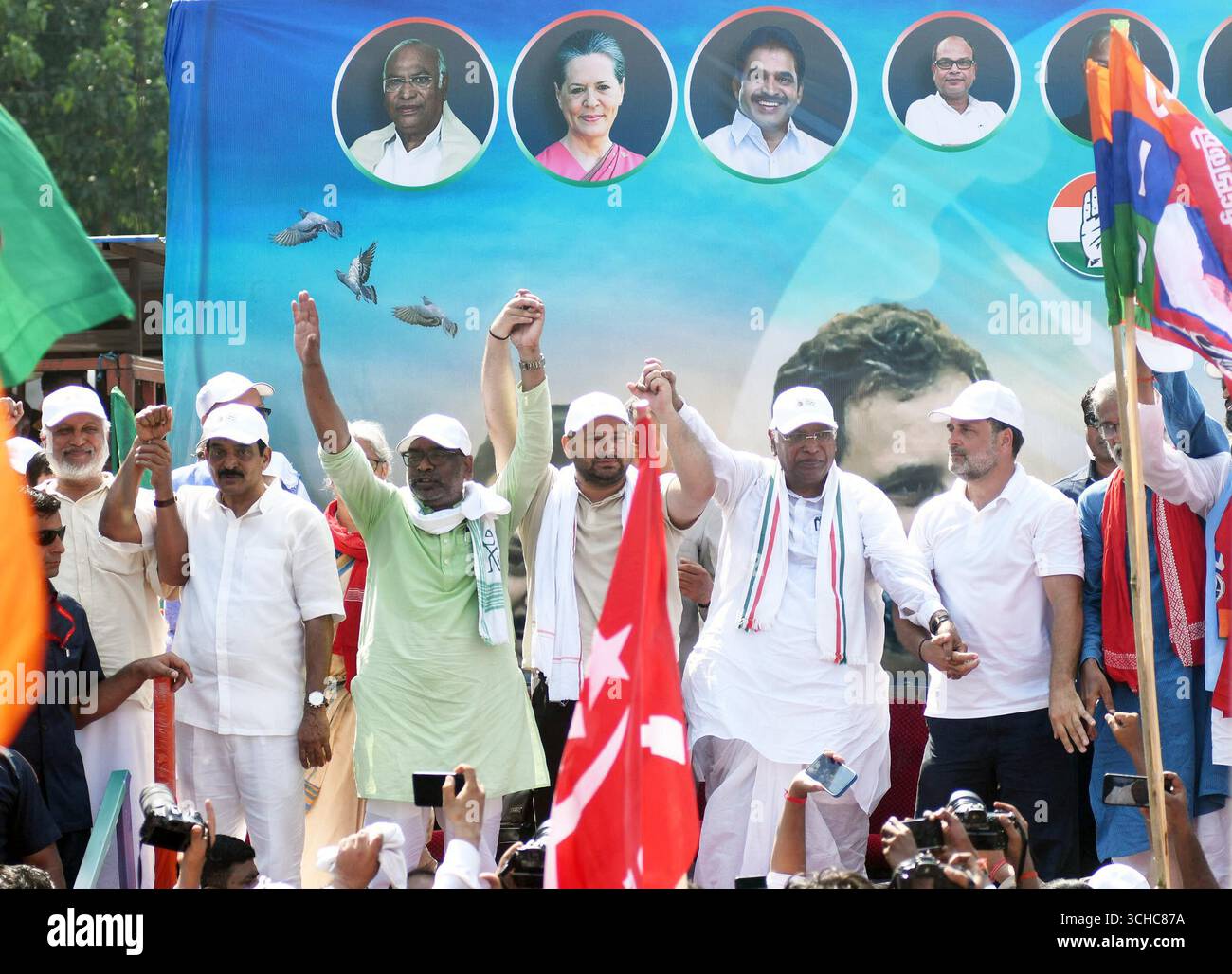
The controversy erupted after Modi, addressing large election rallies in Bihar’s Ara and Nawada districts, accused the RJD of wielding undue influence over the Congress in deciding the alliance’s CM face for the upcoming state polls. He alleged the Congress did not wish to project Yadav but did so under pressure. The RJD and Congress coordinate as part of the broader opposition bloc, with Tejashwi positioned as its CM candidate, and the remarks struck at the heart of their partnership.
Kharge reinforced his rebuttal with pointed language, declaring that nothing and no one compelled the Congress to nominate Tejashwi. He emphasised that the party had exercised its own judgment and asserted that the prime minister was avoiding substantive issues by resorting to incendiary rhetoric. The alliance responded in kind by accusing the ruling coalition of diverting attention from governance concerns by attacking opposition synergy.
Analysts note the exchange reflects deeper tensions within and around the opposition alliance in Bihar. The RJD, led by Lalu Prasad Yadav and Tejashwi, remains the dominant regional partner, while the Congress holds fewer seats but carries national stature. Political observers view the public blame-shift as an effort by Modi and his Bharatiya Janata Party to highlight alleged discord in the opposition and project the ruling coalition’s cohesion ahead of the state election.
Campaigning in Bihar has seen frequent references to past governance periods and alliances’ coherence or lack thereof. The prime minister invoked the RJD’s historical period of rule in the state, characterised by what he termed by the word “jungle raj,” and linked it to the alleged coercion narrative. The Congress countered by asserting that the BJP-led National Democratic Alliance and its campaign focus on development and security lacks engagement with Bihar’s longstanding social and economic issues.
Trackers of Bihar’s political dynamics point out that seats allocation, candidate lists and the naming of Tejashwi as CM-face were agreed after consultations within the opposition bloc, and that the charge of coercion oversimplifies the negotiations and strategic calculations. Some regional leaders say the Congress’ relatively modest electoral strength in Bihar constrained its bargaining power, yet they argue that the final decision emerged from collective consent rather than one party’s domination over another.
For the BJP, targeting the opposition unity serves dual objectives: undermining confidence among partner parties and projecting the ruling coalition’s strength. Modi’s messaging frames the NDA as united behind a vision of governance, contrasting it with an alleged fractious opposition. The opposition leaders counter that highlighting internal discussions and differing views is normal in coalition politics and does not equate to a collapse of alliance unity.
